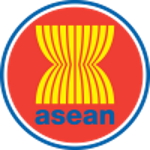 Web Content Viewer
Web Content Viewer

The Eleventh ASEAN Defence Ministers’ Meeting Plus (hereinafter referred to as “ADMM-Plus”), was convened in Vientiane, the Lao People’s Democratic Republic (Lao PDR) on 21 November 2024;
RECALLING the ADMM-Plus’ primary objectives to promote mutual trust, confidence and capacity-building to address shared security challenges and enhance regional peace and stability through cooperation in defence and security, in view of transboundary security challenges;
RECOGNISING climate-related and other natural disasters which are occurring with increasing frequency and intensity, as one of the non-traditional challenges that is cross sectoral and transboundary in nature, and greatly impacts human lives and national socio-economic development;
ACKNOWLEDGING climate-related and other natural disasters’ growing negative impacts on basic human needs and RECOGNISING that these phenomena are not just weather-related and remain a cross-cutting issue that affect our ways of life and require a whole-of-government and holistic approach at the national, regional and international levels, as well as sharing of expertise and joining efforts, and DEMANDING climate resilient and eco-friendly infrastructure;
INSPIRED by the efforts and commitment by the ADMM to promoting capacity-building and cooperation in responding to disasters, including those which are climate-related, through various platforms and initiatives including the Standard Operating Procedure for Regional Standby Arrangements and Coordination of Joint Disaster Relief and Emergency Response Operations (SASOP), ASEAN Logistics Support Framework (LSF), ASEAN Center of Military Medicine (ACMM), ASEAN Militaries Ready Group on Humanitarian Assistance and Disaster Relief (AMRG on HADR) and other ADMM frameworks, where applicable, and EXPRESSING SATISFACTION with the continuous progress of the implementation of these mechanisms;
FURTHER COMMENDING the work of the ADMM-Plus including through the Experts’ Working Groups (EWGs), which could further contribute to addressing the impact of climate-related and other natural disasters in the framework of the ADMM and ADMM Plus;
NOTING ASEAN’s efforts and commitments towards addressing climate change as reflected in the ASEAN Joint Statements on Climate Change and ASEAN Leaders’ Statements on Climate Change to the United Nations Framework Convention on Climate Change (UNFCCC) and the UN Climate Action Summit;
SUPPORTING the implementation of measures to address climate-related challenges under the ASEAN Socio-Cultural Community Blueprint 2025;
RECALLING the UN Sustainable Development Goal 13, which calls for urgent actions to combat climate change and its impacts in order to protect the environment and to slow down the process of global warming;
UNDERSCORING the important role played by the militaries in extending HADR operations to mitigate suffering, losses of life and damages resulting from climate related and other natural disasters;
WELCOMING the conclusion of the negotiations at the ASEAN Ministerial Meeting on the Environment convened in Vientiane, Lao PDR on 23 August 2023 for the Agreement on the Establishment of the ASEAN Centre for Climate Change (ACCC), which will lay a vital foundation for its establishment in Brunei Darussalam to facilitate regional cooperation and coordination on climate change initiatives among ASEAN Member States with relevant national governments as well as regional and international organisations, and provide policy recommendations on addressing climate change to ASEAN Member States with thematic focuses encompassing multitude of themes and bodies across the three Pillars of ASEAN Community;
FURTHER WELCOMING the decision by the ASEAN Ministerial Meeting on the Environment on the establishment agreement of the ASEAN Coordinating Centre for Transboundary Haze Pollution Control (ACCTHPC), which will facilitate faster and effective implementation of the ASEAN Agreement of Transboundary Haze Pollution in the region, and RECOGNISING that extreme weather effects of climate-related phenomena may increase the risks of transboundary haze incidents.
HEREBY REMAINS COMMITTED TO
WORK hand-in-hand to engage, respond, mitigate and adapt to address natural disasters including those exacerbated by climate change through various means, which include but are not limited to workshops, trainings, exercises and other capacity-building and mutual technical support and assistance;
ENHANCE collaboration and cooperation among the ADMM-Plus Countries to further enhance capacity-building in the activities including HADR, Search and Rescue and Early Warning System and climate change adaptation through existing related mechanisms and by exploring innovative approaches in order for the ADMM-Plus Countries’ militaries to be better equipped and ready to respond to climate-related emergencies in a coordinated and effective manner;
WORK with relevant sectoral bodies through ASEAN-led mechanisms to strengthen regional synchronisation and synergy, since collective efforts and commitments from all relevant bodies, both civilian and military, are instrumental to strengthen climate resilience through activities, such as knowledge-sharing and capacity-building;
INCORPORATE, where appropriate, issues on resilience and response to adverse impacts of climate-related and other natural disasters into the relevant ADMM-Plus EWG Work Plans to maximise capabilities, preparedness, interoperability and resilience.
